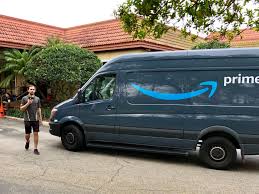Vestwell made headlines today by announcing a new partnership with Amazon’s Delivery Service Partner (DSP) program to offer Pooled Employer Plans (PEPs) to delivery associates. Sounds impressive, right? Let’s slow down. I’ve been in this business long enough to know when something has more press release sizzle than retirement plan steak.
At first glance, this is a feel-good story about democratizing retirement savings. Amazon has 400,000 drivers in its DSP network, and these small businesses have historically struggled to offer 401(k) plans. PEPs are supposed to simplify and reduce costs, and Vestwell wants to step in as the pooled plan provider. They’ll handle fiduciary duties, onboarding, and admin—essentially a turnkey retirement plan for folks who spend more time behind the wheel than behind a desk.
But here’s my skepticism: don’t assume this will result in a mountain of new 401(k) assets. In fact, this might just be a giant exercise in collecting dimes.
PEPs for the Little Guys: Nice in Theory, Tough in Practice
I’ve seen how these small employer PEPs and solo 401(k) PEPs play out. They sound revolutionary, “One plan to unite them all!,” but when the rubber meets the road, they rarely bring in large sums. Why? Because the average participating employer is tiny. You’re talking about owner-operators or companies with 5–10 employees, tops. Even if the plan sees decent participation, the average account balance is going to be modest. Very modest.
Remember, just because a PEP has access to 400,000 workers doesn’t mean anywhere near that number will enroll, or contribute meaningfully. You think every DSP is clamoring to start a retirement plan and make matching contributions? Many are barely keeping up with labor costs, insurance, and fuel prices.
This business is hard enough without fantasy projections about how many Amazon drivers are suddenly going to become long-term retirement savers. Yes, it’s a noble goal, but nobility doesn’t equal profitability.
Fiduciary Work for a Few Bucks a Month?
As a pooled plan provider, Vestwell is taking on a significant fiduciary and administrative load. When you’re dealing with hundreds or thousands of small employers, each with unique payroll quirks, language needs, and inconsistent staffing, the operational complexity balloons. And for what? A few bucks per participant per month?
It’s the same reason I warn advisors against going all-in on solo 401(k)s. You can fill your calendar helping sole proprietors and gig workers, but it’s a volume business with razor-thin margins. There’s a reason most national recordkeepers don’t chase this market: the juice isn’t worth the squeeze.
A Big Win for PR, Not Necessarily for Plan Providers
Don’t get me wrong—Vestwell deserves credit for taking on a tough, underserved market. But let’s not pretend this is going to rival a Fortune 500 company dropping a $100 million 401(k) plan on your platform. This is about incremental impact. Lots of little balances. Lots of work.
What’s the ROI here? It depends. If you believe PEPs will fundamentally reshape the small business retirement landscape, maybe this is your Woodstock. But from where I sit, this is more like a Costco run: you’re getting volume, not margin.
The Bottom Line
I’ve always said that success in this business comes from focus, not fantasy. PEPs are a good tool, but they’re not magic. Don’t expect a retirement gold rush just because Amazon’s logo is on the press release. It’s still a game of dimes, useful, important dimes, but dimes all the same.
And as always, don’t get caught up in the hype. Especially when the plan design is still in motion, the employers haven’t signed on, and the actual participation rate is anyone’s guess.
Because at the end of the day, I’m not interested in delivering packages, I’m interested in delivering results.







